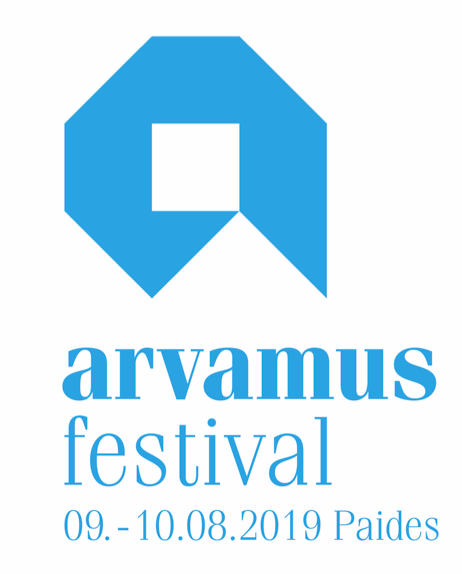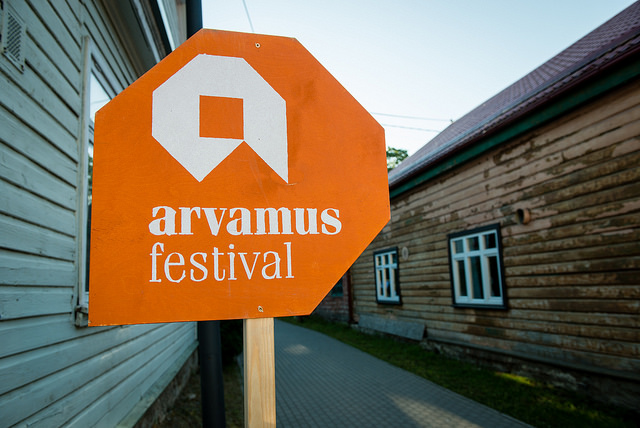We listened and spoke up, we danced and laughed (to the beat of 90s music, no less), we connected… the Arvamusfestival may be over for this year, but it certainly will not rest and keep still, thanks to the sheer enthusiasm, ideas and collaborations it sparked.
The 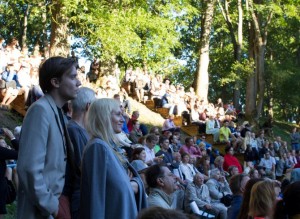 third Arvamusfestival ended on a high note on Saturday evening. The final debate of the festival invited all six leaders of the Estonian parties currently in parliament (with Kadri Simson standing in for Edgar Savisaar, leader of the Centre Party) to share their vision and common goals beyond the nitty-gritty and quibbles of everyday politics. Fitting in with the several events at this year’s festival searching for a ‘story of the future’ for Estonia, the party leaders were asked to share their idea about what Estonia could and should stand for and look like by 2040.
third Arvamusfestival ended on a high note on Saturday evening. The final debate of the festival invited all six leaders of the Estonian parties currently in parliament (with Kadri Simson standing in for Edgar Savisaar, leader of the Centre Party) to share their vision and common goals beyond the nitty-gritty and quibbles of everyday politics. Fitting in with the several events at this year’s festival searching for a ‘story of the future’ for Estonia, the party leaders were asked to share their idea about what Estonia could and should stand for and look like by 2040.
To add a light twist to the weightier questions at the debate and the festival at large, stand-up group Fopaa! completed the programme on Vallimägi with astute jokes about whales, the meaning of ‘normal’, and new loanwords for ending a phone conversation. The night, and festival, drifted to a playful and sweaty end on Paide’s central square with the ever-popular Theatre NO99’s ‘Dance Camp’ where participants danced away to moves inspired by music videos from the lycra-loving 80s and 90s.
This year, the Arvamusfestival grew by leaps and bounds in every sense of the expression. It brought together an unprecedented 10,000 people and more over two days; by comparison, last year’s festival welcomed 4,200 people in total. Meanwhile, the programme, comprising an impressive 224 discussions on a vast range of socially relevant topics, was the result of a successful collaboration with various public institutions, NGOs and private enterprises. This was also the first year that Paide’s central square became a festival location, acting, among other things, as a hotspot for home cafés and a graffiti competition.
So, what made this weekend special, and why is the Arvamusfestival a very different and necessary kind of offering amongst the plethora of summer events taking place in Estonia?
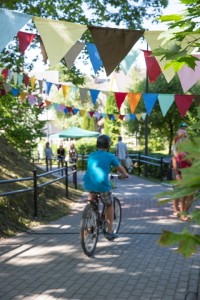 As a first-time participant of the festival myself, I felt at complete ease from the second I visited Paide Vallimägi and witnessed the festival area for the first time. While, truth be told, that was partly to do with my love for eco-centric design, hammocks and all things cosy, I was also struck by how the divers discussion areas, all shaped differently and hosting often very different discussions, all came together in the spirit of the festival’s belief in discussing and sharing opinions.
As a first-time participant of the festival myself, I felt at complete ease from the second I visited Paide Vallimägi and witnessed the festival area for the first time. While, truth be told, that was partly to do with my love for eco-centric design, hammocks and all things cosy, I was also struck by how the divers discussion areas, all shaped differently and hosting often very different discussions, all came together in the spirit of the festival’s belief in discussing and sharing opinions.
To give you a sense of the mind-boggling number of topics just one participant can encounter in two days, here is a short list of the discussions I managed to attend, in no particular order: refugee policy in Estonia and Europe, the utility of start-ups for Estonia, urban space and new urban landmarks, ‘a year after Crimea’ and the state of European defense policy, the oft-mythical and harmful connection between alcohol and culture, apps and Estonian small businesses, animal rights in a human-centred society, the debate between party leaders. This did not even scratch the surface of the discussions taking place nor does it include the cafés visited, the people and dogs spoken to, the cultural events attended. With so much going on from Friday morning onwards, it felt like I had always been a part of the festival, and this feeling only grew as the Arvamusfestival went on.
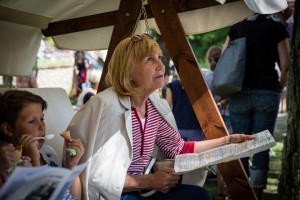 But mostly, I was inspired by the people at the Arvamusfestival. The seven hundred participants in the discussion panels, the thousands of participants in the audience, and the three hundred festival volunteers. The Arvamusfestival involves everyone in discussing, questioning and acting on topics close to Estonia and Europe – and the thoughtful way the discussions were run, the abundance of constructive questions and the lack of any awkward silences (…and this in a country that often feels like the birthplace of the awkward silence) showed that a place for healthy discussion matters, and that active citizenship is no longer a thing of dreams, but alive and rather well in Estonia.
But mostly, I was inspired by the people at the Arvamusfestival. The seven hundred participants in the discussion panels, the thousands of participants in the audience, and the three hundred festival volunteers. The Arvamusfestival involves everyone in discussing, questioning and acting on topics close to Estonia and Europe – and the thoughtful way the discussions were run, the abundance of constructive questions and the lack of any awkward silences (…and this in a country that often feels like the birthplace of the awkward silence) showed that a place for healthy discussion matters, and that active citizenship is no longer a thing of dreams, but alive and rather well in Estonia.
Thank you, and see you again (or for the first time) next August!
